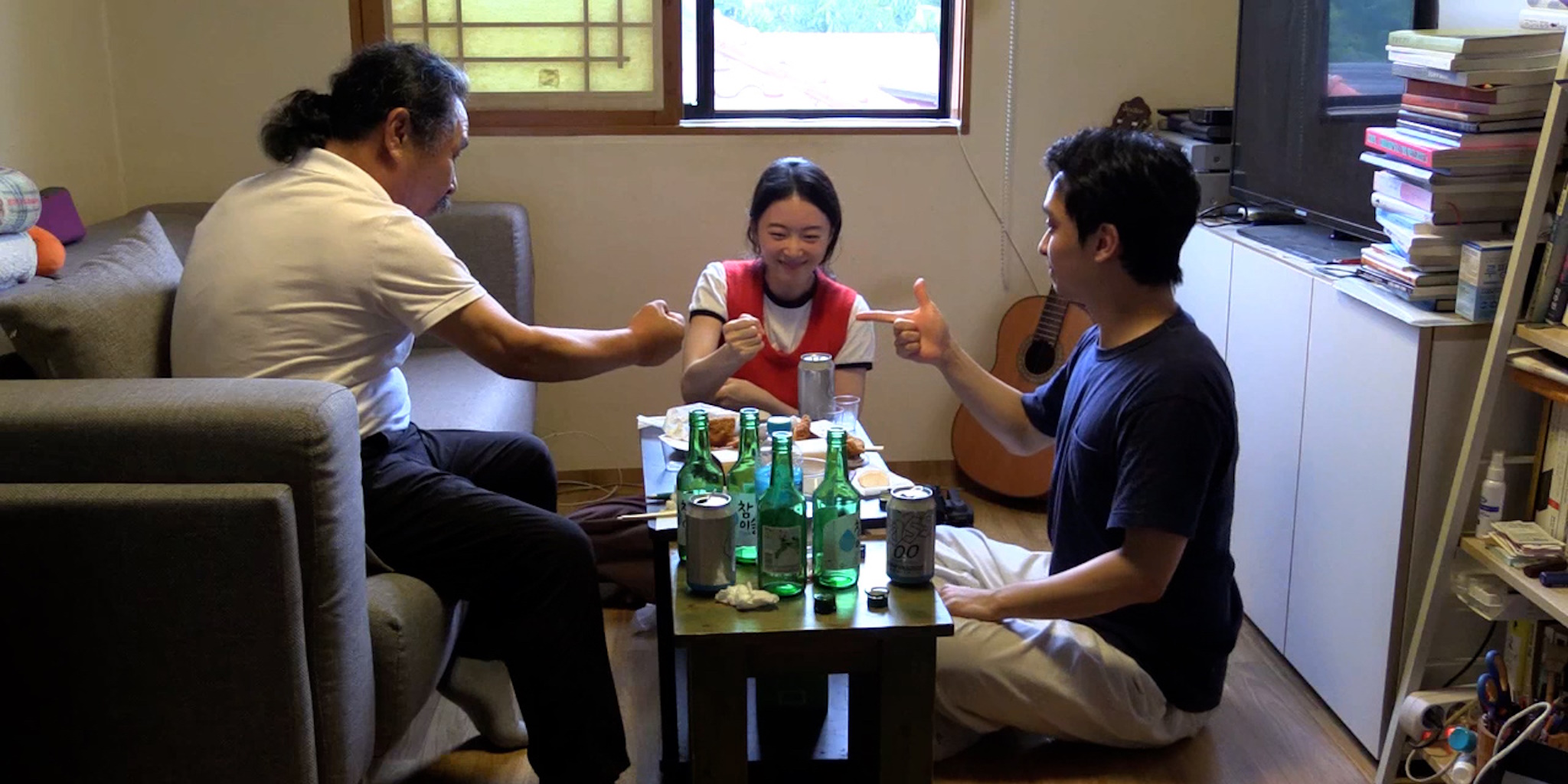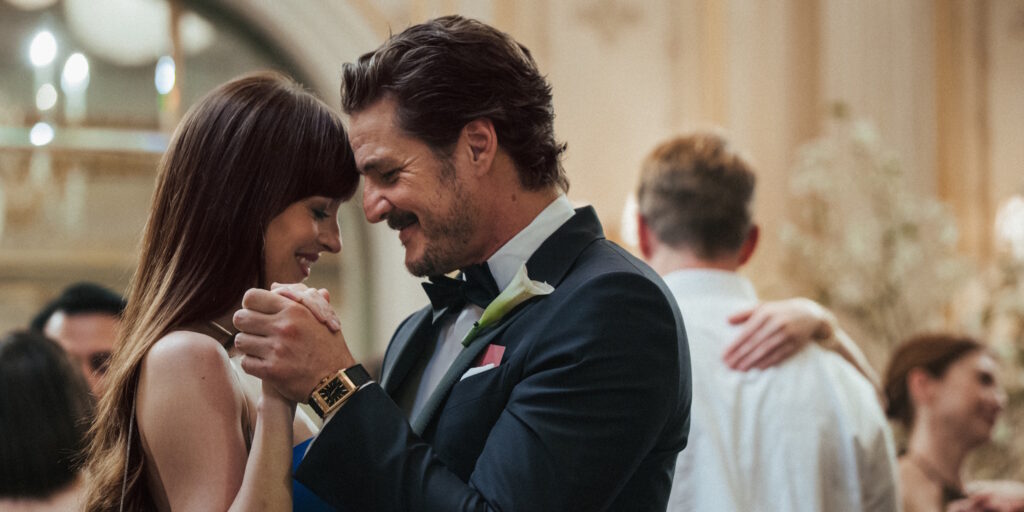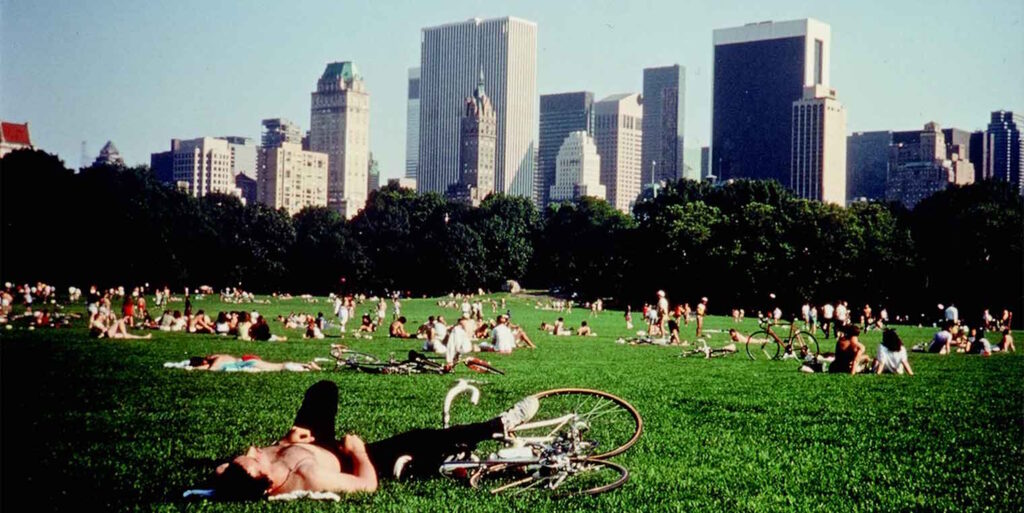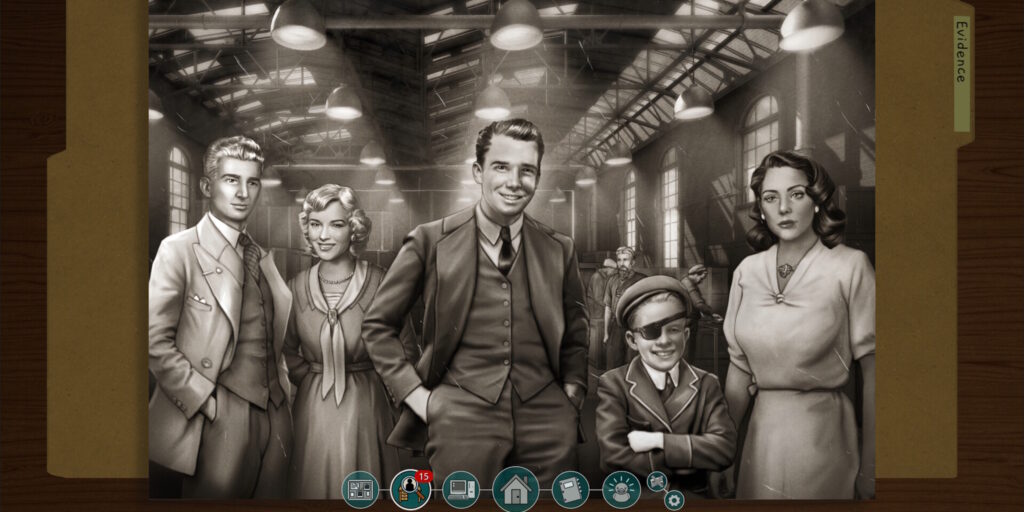After a string of recent experiments with form, it’s initially a little disarming to see writer-director-cinematographer-editor-composer-producer Hong Sang-soo return to well-trodden ground. Whether it be his all-female-led The Woman Who Ran (2020) or the short-and-splintered Introduction (2021); the joyfully moribund In Front of Your Face (2021) or the quiet transcendence of The Novelist’s Film (2022); the innovative storytelling of Walk Up (2022) or the unconventional style of in water (2023), Hong sure has been doing a lot of tinkering as of late. (Even more than is to be expected from someone who is so tirelessly, incessantly creative.) That’s why it’s so unexpected that his latest, In Our Day, relies on a traditional bifurcated structure so often associated with his previous work. Of course, it’s all in the service of something.
The film unfolds over the space of two (very, very) loosely linked gatherings. In the first, actress-turned-student Sangwon (Kim Min-hee) returns home to South Korea after making a midlife career switch. Staying with her friend Jungsoo (Song Sun-mi), she offers up some advice to her cousin Jisoo (Park Mi-so), hoping to follow in Sangwon’s footsteps as an aspiring actress herself. In the second, aging poet Hong Uiju (Gi Ju-bong) consents to be filmed for a documentary by Kijoo (Kim Seung-yun). For the final part of the doc, Uiju agrees to take questions from another aspiring actor Jaewon (Ha Seong-guk).
Beneath their surface-level disconnection, the film’s two sequences are fused to make a cohesive whole. Sangwon, Jungsoo, and Jisoo’s conversation — which begins with talk of cats that act like dogs and popular self-care products in Brazil — soon shifts to a frank discussion about what it means to be honest as an actor. Sangwon has just left the craft, while Jisoo is looking for a way in. Meanwhile, Uiju and Kijoo’s conversation starts with a loving tribute to alcohol, tobacco, ramen noodles, and hot-pepper paste, then drifts toward a similar subject with the arrival of Jaewon: honesty in poetry. These two halves might not seem like a good fit at first glance, but before long, each of the bisected segments begin to focus on truth, lies, and meaning in art.
By the film’s end, the audience is left to reflect on two distinct yet complementary storylines about innocent, green hopefuls entering into a field of the arts that their wise, weary sages have all but left behind. There are several lines of dialogue that stick out as thinly veiled responses from Hong to his detractors — the ones who wonder about the point of his 30-and-counting films, with their minimalist style, conversational tone, and threadbare plotting. “Meaning is cowardice,” he says through the mouthpiece of In Our Day. “Life goes on regardless of reason,” he adds. Hong even goes so far as to argue (via Sangwon) that being honest and giving people what they want cannot be done simultaneously. It’s one of the more candid choices from an already forthright filmmaker.
Don’t be fooled by the disarmingly back-to-basics approach of Hong’s latest. Without an ambitious structure or other groundbreaking departure from form, the multi-hyphenated sexagenarian can ruminate on the very essence of his bountiful catalog: truth. That, he posits, is the point of doing something — in this case, making deeply personal films — that so few will potentially see. Life is wandering between bad answers, as Uiju poetically puts it, and that is the way to unlock an authentic existence. Is it unreasonable, then, to suggest that Hong keeps making movies because he continues finding new, better answers to tell? What a pleasure it is to watch him work it all out in real time.
In Our Day screens nightly at 7:30 p.m. on May 24 – 26 at the Webster University Film Series.




